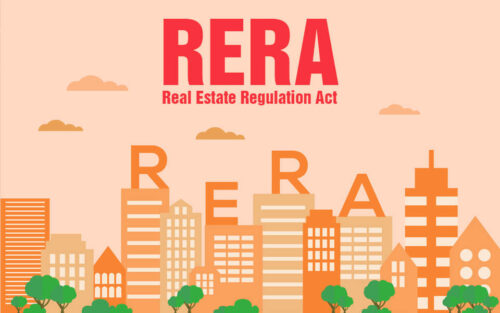RERA COMPLIANCE: RESPONSIBILITIES AND OBLIGATIONS FOR REAL ESTATE DEVELOPERS
Introduction:
The real estate sector plays a vital role in the economic growth of a nation, and to ensure transparency and protect the interests of homebuyers, several countries have enacted legislation to regulate the industry. The Real Estate (Regulation and Development) Act, commonly known as RERA, is one such significant regulatory framework that imposes various responsibilities and obligations on real estate developers. In this article, we will delve into the key compliance requirements outlined by RERA and highlight the crucial responsibilities that developers must fulfill.
- Registration under RERA:
One of the primary obligations for real estate developers is to register their projects with the designated authority established under the RERA Act. The registration process involves providing detailed information about the project, such as land title, layout plans, timelines, financial details, and legal clearances. Developers must ensure that all the necessary documents and disclosures are submitted accurately and within the prescribed timeframe.
- Adherence to Project Timeline:
RERA mandates that developers adhere to the specified project timeline provided during the registration process. Timely completion of projects is crucial to protect the interests of homebuyers and maintain trust in the real estate sector. Any changes or delays in project completion must be intimated to the buyers and the regulatory authority, along with valid reasons and necessary extensions, if applicable.
- Transparency in Marketing and Advertising:
Real estate developers have a responsibility to maintain transparency in their marketing and advertising practices. RERA emphasizes that all promotional materials, advertisements, and brochures must provide accurate and factual information about the project, including the status of approvals, amenities, and specifications. Misleading or false advertising is strictly prohibited and can lead to severe penalties.
- Deposit of Funds in Escrow Account:
To prevent diversion of funds and safeguard the interests of homebuyers, RERA mandates that developers deposit a certain percentage of the project funds into a dedicated escrow account. The funds from this account can only be utilized for construction and land-related expenses. This provision ensures that the money collected from buyers is utilized appropriately and promotes financial discipline among developers.
- Compliance with Quality Standards:
Real estate developers are responsible for adhering to the quality standards and specifications mentioned in the agreement and approved by the regulatory authority. RERA emphasizes the use of good quality materials, adherence to construction norms, and compliance with safety standards to ensure that homebuyers receive dwellings that meet the promised quality.
- Obligations towards Homebuyers:
RERA places a significant focus on protecting the interests of homebuyers. Developers must provide accurate information regarding the progress of the project, construction updates, and any changes that may impact the buyers. They are also obligated to rectify any structural defects or deficiencies brought to their attention within a specified period after possession. Timely handover of possession, along with necessary completion certificates and documents, is a crucial responsibility of the developer.
Conclusion:
The implementation of RERA has revolutionized the real estate sector by introducing transparency, accountability, and consumer protection. Real estate developers play a pivotal role in ensuring compliance with RERA provisions. By registering projects, adhering to timelines, maintaining transparency, and upholding quality standards, developers can build trust and confidence among homebuyers. Compliance with RERA not only benefits the industry but also strengthens the overall economy by fostering a fair and sustainable real estate market.


